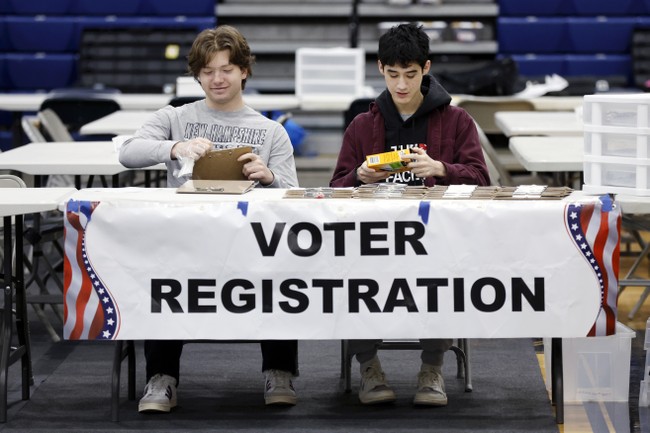Ontario Premier Doug Ford has expressed strong opposition to President Donald Trump’s decision to escalate tariffs on foreign-made vehicles, a move that is set to impact Canada significantly.
President Trump announced on Wednesday that he would impose a 25% tariff on imported passenger vehicles, including sedans, SUVs, crossovers, minivans, and light trucks, as well as key automobile parts such as engines, transmissions, and electrical components.
President Trump is bringing back MADE IN AMERICA:
25% tariff on automobiles made outside of the U.S.
$100B projected in new revenue thanks to auto tariffs
Strengthen America’s manufacturing industry pic.twitter.com/ArU44jdTn3— The White House (@WhiteHouse) March 26, 2025
Elon Musk Called This Financial News ‘Terrifying’
Additionally, Trump has made provisions to expand these tariffs to cover other automobile parts if necessary.
This action is part of a broader executive order that will take effect on April 2, imposing reciprocal tariffs on any country that charges the United States taxes or tariffs on imported goods.
Trump has referred to April 2 as “Liberation Day,” highlighting the significance of this move for the future of U.S. trade policy.
FREE Concealed Carry Gun Laws & Reciprocity Map
Ford, the leader of Ontario’s Progressive Conservative Party, responded swiftly to Trump’s tariff increase during a press conference in Toronto.
In remarks that have stirred controversy, Ford vowed to retaliate against the United States in a manner that would cause significant hardship for American citizens.
“I can assure you one thing,” Ford told reporters. “We’re gonna make sure that we inflict as much pain as possible on the American people.”
Ontario Premier Doug Ford says he’s going to “inflict as much pain as possible” on the American people in response to the latest tariffs.
Trump is going to absolutely destroy this slob if he keeps it up. pic.twitter.com/VGqzqdypt2
— johnny maga (@_johnnymaga) March 27, 2025
Ford’s comments have drawn sharp criticism, with many questioning the appropriateness of such a response.
He also stated that he had spoken to Canadian Prime Minister Mark Carney, suggesting that Canada’s response should target American-made cars in particular.
“We buy as many cars off the U.S. as we sell down there,” Ford explained, indicating that he believes retaliatory measures could focus on the automobile sector.
Ford’s remarks are not the first time he has made aggressive statements in response to U.S. policies. Earlier this month Ford threatened to cut off electricity to over 1 million Americans living in New York, Michigan, and Minnesota.
“If he wants to destroy our economy and our families, I will shut down the electricity going down to the U.S.,” Ford boasted. “And I’m telling you, we will do it.”
Ontario Premier Doug Ford announced that he is ready to enter a “trade war” with the United States, saying that Americans will “feel the pain like they’ve never felt before.” pic.twitter.com/ofk3r0A3k1
— Trending Politics (@tpbreaking) March 3, 2025
However, Ford quickly backed down from this threat after President Trump warned of potential retaliation against Canada.
Ford’s initial bravado was replaced by a more measured response, underscoring the delicate balance of power between the two countries in matters of trade and diplomacy.
Ford’s combative statements regarding the new tariffs reflect growing tensions between Canada and the United States over trade practices.
Trump’s tariff adjustments are designed to incentivize American businesses to bring manufacturing jobs back to the U.S. and reduce reliance on foreign-made products.
For Canada, which has significant trade relations with the U.S., these tariffs are likely to have a profound economic impact, particularly in the automotive industry.
The growing trade dispute between Canada and the U.S. raises concerns about the broader consequences for both countries’ economies.
While Ford’s comments suggest a willingness to challenge U.S. policies, the long-term impact of such tensions remains uncertain.
It is clear that the trade relationship between the two nations will continue to evolve as both sides navigate these complex issues.
As Ford’s comments have already sparked debate, it remains to be seen how Canada will officially respond to Trump’s tariff policies when they take effect in April.
The situation highlights the ongoing friction between the two countries and the potential ramifications for industries on both sides of the border.
American Made Patriotic Apparel – Save 15% with Promo Code MERICA
The opinions expressed by contributors and/or content partners are their own and do not necessarily reflect the views of LifeZette. Contact us for guidelines on submitting your own commentary.
Read the full article here


![Canada’s Doug Ford Vows to Inflict “As Much Pain As Possible” on the American People [WATCH] Canada’s Doug Ford Vows to Inflict “As Much Pain As Possible” on the American People [WATCH]](https://www.rvmnews.com/wp-content/uploads/2025/03/2025.03.28-10.45-rvmnews-67e67dbf20c64.jpg)








![Sanctuary City Mayor Calls Law Enforcement ‘a Sickness’ in His Crime-Ravaged City [WATCH] Sanctuary City Mayor Calls Law Enforcement ‘a Sickness’ in His Crime-Ravaged City [WATCH]](https://www.lifezette.com/wp-content/uploads/2025/09/2025.09.03-01.19-lifezette-68b8406c1f71f.jpg)
